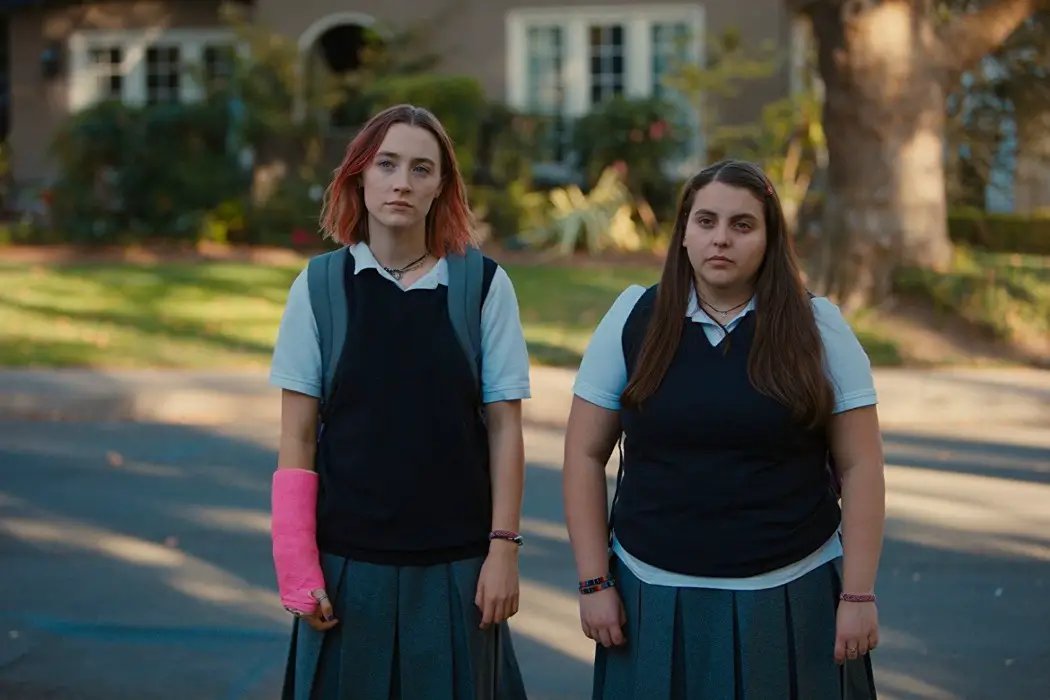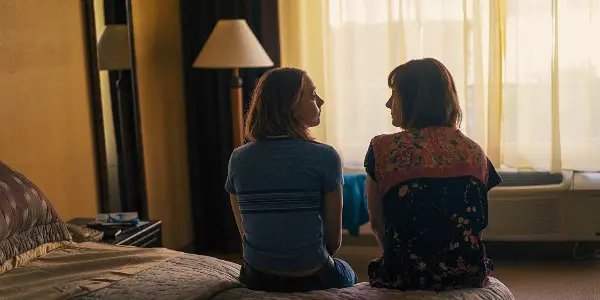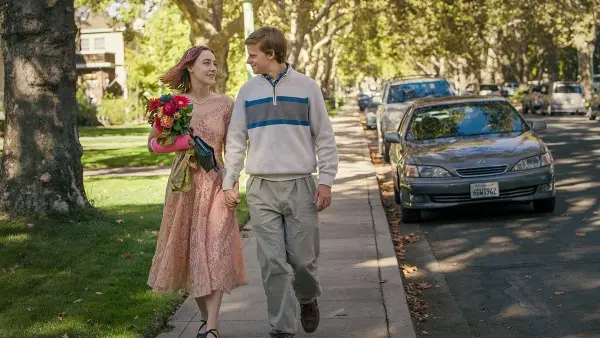LADY BIRD: Invisible Perfection?

23year-old multi-award winning filmmaker and writer from the UK, a…
While Greta Gerwig’s directorial debut, Lady Bird, scooped up no less than five Academy Award nominations (including Best Picture, Best Actress, Best Original Screenplay and Best Director), its stark record-breaking 99% fresh on Rotten Tomatoes rubs roughly against a small portion of audience reviews, which have Lady Bird at a slightly higher than average 79%. Not dissimilar to its metascore, critically 94 but user reviews punch in at 7.5/10.
Is Lady Bird just another addition to a well-worn coming of age genre? Or is Gerwig’s natural talent so vastly overwhelming, it’s almost invisible to the naked eye?
‘The Critics, 99%? Really?!
It’s very easy to watch a film like Lady Bird and let it zoom right past you, especially if you’re uninvested or you’re overtly looking for the signs of ‘cinematic genius’ trailers wish to impress on you so intently. This is partly due to the film’s familiar genre; coming of age, teen drama, independent film. Aforementioned, audience reviews have been slightly higher than average, but they range from “This is completely boring.” to “One of the best movies I’ve seen.”
Lady Bird doesn’t outwardly try to produce a shocking moment or deliver an arrow to hang a specifically interesting premise on for a general audience, Boyhood is an example of a coming of age film that represents this idea, a coming of age, independent teen drama – hook? It’s shot over twelve years. Without a clear attribute to isolate, it’s harder for audiences to latch onto a something as well revered as Lady Bird.
Gerwig’s Lady Bird dare not hide behind technical gimmickry, despite its plot and premise being something we’ve all seen a hundred times before. Good or bad, Gerwig delivers the goods here in a way a that’s far beyond most of her peers in the filmmaking industry. In fact, it’s a wonderful example of how a film really does require your undivided attention to be fully immersive and satisfactory.
The ‘Micro-Scene’ by Greta Gerwig
Enter example number one. What I’ll refer to as the ‘micro-scene’, the short snippets in the film, so short and independent, they couldn’t be identified as scenes per se, but neither as montages. Gerwig fastens these micro-scenes subconsciously throughout Lady Bird. In fact, it’s the first shot of the film, where we get almost 7 seconds with Lady Bird and her mother- or the few seconds we get of Lady Bird and her friends mindlessly throwing food at each other, before she walks in on Danny in the bathroom.

It’s these tiny moments that lightly sew together the fabric of the film’s emotional pacing. Otherwise, if easily missed by the average audience member, when glancing at a phone, bending down for your drink or talking to the person next to you, Lady Bird could slowly dissolve into another coming of age drama. Golden junctures like these do more than shape up the emotional editing style, they reveal something subconscious and honest about the characters in them. When studied technically these ‘micro-scenes’ don’t logically connect or tie scenes together, they live where they need to, consistently seasoning the film with a bit more emotional depth each time – they’re so subtle you barely notice them at all.
Lastly, it adds the final feeling of liveliness, when you’re invested in a narrative-driven scene and then suddenly dropped into Laurie Metcalf tucking Saorsie Ronan to bed carefully for 10 seconds. It’s heartwarming and surprising. Especially in a film where characters don’t know how to say what they mean, micro-scenes are the real shards of honesty left behind, manifesting the sense of cinema needed for the dialogue-heavy conflicts to excel.
Reading Between The Lines, Lady Bird’s Dialogue
I’m sure Greta Gerwig’s screenplay has been praised enough already, whether it’s for its exceedingly natural pacing or specific back and forths, not to mention one liners, infinitely quotable: “Don’t be a republican.” Nevertheless, there’s more to the dialogue than just that; where some audience members will fail to relate with lines like “Who was Jim Morrison?”, Lady Bird/Christine is a character finding herself as she speaks.

The humour doesn’t come from the specificity and the intelligence doesn’t come from the fast pace. It comes from Lady Bird’s adaptive nature to each situation. We see, hear and feel her fail or succeed in acclimating to other people or environments. When she approaches Timothee Chalamet’s Kyle at The Deuce, he jokes he won’t snitch on her, she confidently blurts out, “Well, I hope not, cause I’d f*cking kill your family”, and immediately regretting it. But this happens often; “She’s a c***’ Lady Bird states when she starts talking to the popular girl, Jenna.
The willingness for Lady Bird to jump to such extremes, at the expense of her true feelings and at the expense of the honest people around her creates the unmutable tension we crave. These playful misteps may end up being lost lines of dialogue to unattentive ears, just as micro scenes provide honesty between the seams of scenes, Greta Gerwig writes dialogue that continues to say two things at the same time.
Lady Bird’s hospitable critical response shows that the art of filmmaking is dense and more than that of camera work, ie. Dunkirk and completely bold original stories, such as Get Out. It’s precisely this quality that makes Gerwig’s Lady Bird a masterpiece in its own genre – it’s simply the most well written and directed of its kind. Gerwig’s approach feels obvious only because we’re watching something that feels so familiar, and yet, Lady Bird has no reason to be.
What do you think? Is Lady Bird overrated or the best of its kind?
Does content like this matter to you?
Become a Member and support film journalism. Unlock access to all of Film Inquiry`s great articles. Join a community of like-minded readers who are passionate about cinema - get access to our private members Network, give back to independent filmmakers, and more.













